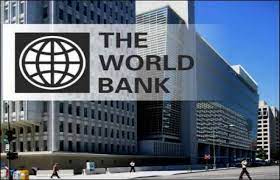Global growth will slow down over the next two years in the face of “fresh threats” from COVID-19 variants and rising inflation, debt, and income inequality, the World Bank said on Tuesday in its latest report.
While economic growth experienced a strong rebound in 2021, it is expected to decline markedly from 5.5 percent last year to 4.1 percent in 2022 and drop to 3.2 percent in 2023.
Following a strong rebound in 2021, the global economy is now entering a slowdown amid threats from COVID-19 variants and a rise in inflation, debt, and income inequality—all adding to the risk of a “hard landing” in developing economies.
Given the rapid spread of the Omicron variant, the COVID-19 pandemic will continue to disrupt economic activity in the near term, according to the Global Economic Prospects report.
Furthermore, notable deceleration in major economies, including the United States and China, will have an impact on external demand in their emerging and developing counterparts.
“The world economy is simultaneously facing COVID-19, inflation, and policy uncertainty, with government spending and monetary policies in uncharted territory.
“Rising inequality and security challenges are particularly harmful to develop countries,” said David Malpass, President of the World Bank Group.
“Putting more countries on a favourable growth path requires concerted international action and a comprehensive set of national policy responses.”
The slowdown will coincide with a widening divergence in growth rates between advanced and emerging or developing economies.
By 2023, all advanced economies will have achieved a full output recovery, the report said, but output in emerging and developing economies will remain 4 percent below its pre-pandemic trend.
The setback is even larger in fragile and conflict-affected economies, whose output will be 7.5 percent below the pre-pandemic trend. For small island states, it will be 8.5 percent below.
Meanwhile, rising inflation is constraining monetary policy, with low-income workers particularly hit hard. Inflation is running at the highest rates since 2008, both globally and in advanced economies, and has reached its highest rate in a decade in emerging markets and developing economies.
The report contains analytical sections that outline three emerging obstacles to durable recovery in developing economies. It also includes regional outlooks for growth over the next two years.
Mari Pangestu, the World Bank’s Managing Director for Development Policy and Partnerships, stressed the importance of multilateral collaboration as the choices policymakers make in the coming years will decide the course of the next decade.
“The immediate priority should be to ensure that vaccines are deployed more widely and equitably so the pandemic can be brought under control. But tackling reversals in development progress such as rising inequality will require sustained support,” she said.
“In a time of high debt, global cooperation will be essential to help expand the financial resources of developing economies so they can achieve green, resilient, and inclusive development.”

